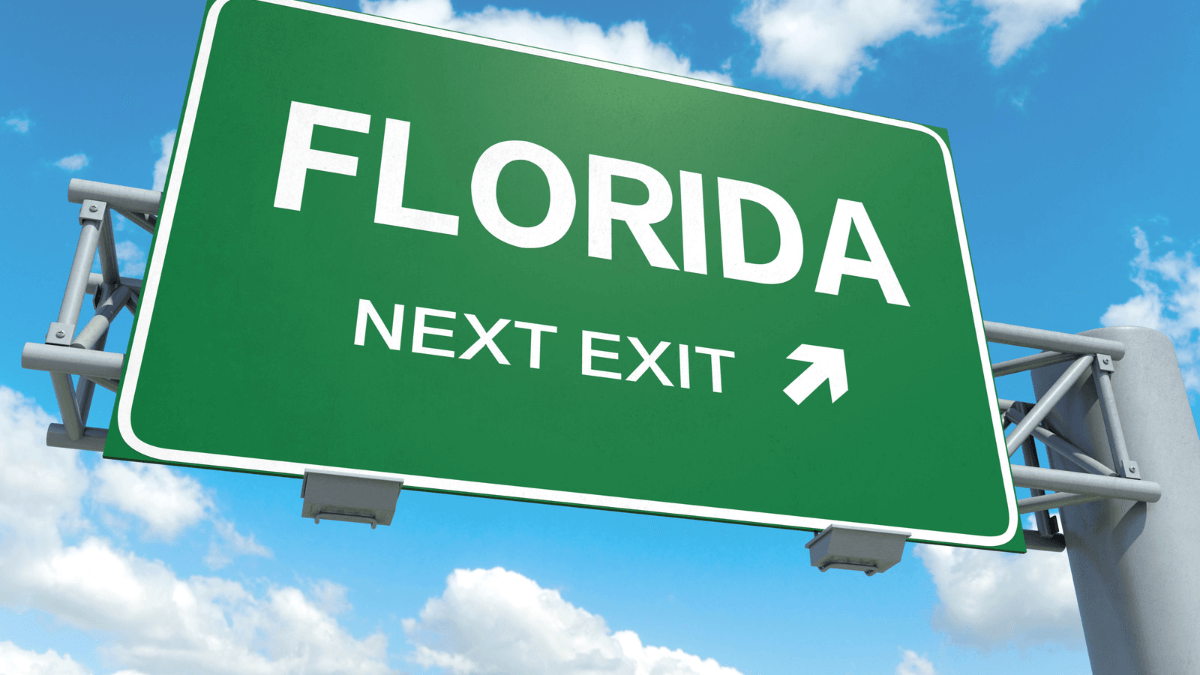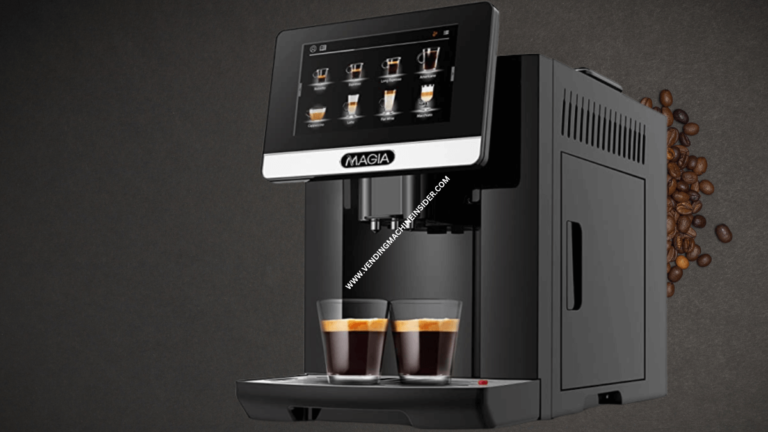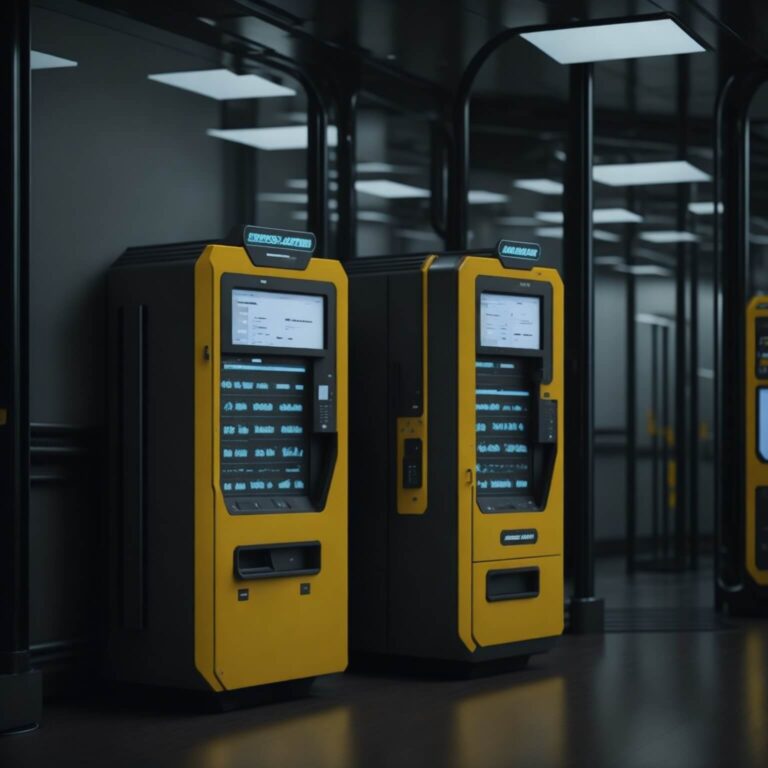How to Start a Vending Machine Business in Florida? License & Financing
Planning a vending machine business in Florida? Check out this guide to know where to start.
Starting a vending machine business in Florida can be a great idea, particularly because Florida won’t impose taxes on your income.
Getting a vending machine license, registering your business, and choosing a financing option is all it takes to start a vending machine business in Florida.
You can start a Vending Machine business in Florida in a few steps. You need to get accepted for a vending license and register your business with the state of Florida. Choose your Vending Machines and their locations. Lastly, insurance is mandatory for most businesses from a legal point of view.
RELATED READ:
- Vending Machine License for Australia: Criteria & Requirements
- How to Get Permission to Put Vending Machines?
- Do You Need an LLC for Vending Machines Business?
How to Own a Vending Machine in Florida?
Continue reading for more details on starting a vending machine business in Florida!
1. Apply for a Vending License
To start a vending machine business in Florida, you must apply and get accepted for a vending license.
There are different licenses available depending on the nature of your vending machine business. For example, if your business is related to alcoholic beverages, it’ll be treated differently than if it’s related to retail beverages and snacks.
You can find a complete list of licensing requirements based on your business type on the state’s Department of Business and Professional Regulation (DBPR) website.
After choosing the category of your business, you can fill out an online application form to apply for the license.
On a side note, keep in mind that the division includes 7 licensing districts where different licensing fees and regulations apply.
Here’s a list of all the districts, along with their license annual expiration date:
- District 1 – October 1
- District 2 – December 1
- District 3 – February 1
- District 4 – April 1
- District 5 – June 1
- District 6 – June 1
- District 7 – December 1
The good news is that if you apply for the license less than 6 months before the expiration, the licensing fees will be reduced to half for the first year. Moreover, a sanitation and safety inspection is required for new licenses.
2. Register Your Vending Machine Business With the State of Florida
After acquiring a vending machine license, you need to register your business with the state of Florida.
To do that, visit the Florida Department of Management Services’ website and fill out all the required information, including company name, tax filing name, and federal tax ID.
Additionally, you’ll be prompted to provide the location of your business, as well as the type of products or services you provide.
Once you’re done with the registration process, all you have to do is wait for approval.
3. Choose your Vending Machines
There are many types of vending machines that offer different commodities.
And while you might be tempted to simply opt for standard snack and soda vending machines, the scope of your business can be expanded into way more than that. Here are some ideas:
- Coffee
- Gumballs
- Rubber balls
- Tobacco
- Laundry products
- Cold food
4. Choose the Locations of Your Vending Machines
Placing your vending machines in the right locations can either make or break your vending machine business.
Think about the last few times you bought something from a vending machine. Where were you at that time, and why did you choose to buy the item from the vending machine and not from a store? By asking yourself these questions, you should be able to decide the best locations for your vending machines.
Usually, people buy items from vending machines when they’re in a hurry or when there are stores around to purchase from.
Here are some location ideas to help you get started:
- Schools
- Hospitals
- Medical centers
- Airports
- Shopping malls
- Laundromats
- Grocery stores
- Apartment complexes
After creating a basic list of locations, make some phone calls to the respective managers of these locations and propose that you install a vending machine in their facilities.
5. Get Adequate Financing
Vending machine businesses don’t require a massive budget. To finance your vending machine business, you’ve got two options: Short-term loans and equipment financing loans.
A short-term loan, as its name implies, is a loan with a relatively short repayment period, usually less than 18 months.
Once you get accepted for a short-term loan from any lending entity, the funds will be deposited directly into your business’ bank account. Then, you’ll have to repay the loan in monthly installments over the loan’s term plus the standard interest rate.
However, keep in mind that, while short-term loans are often easier to get approved for than long-term loans, you must have a good credit score to be eligible for a loan. The required credit score will vary depending on the loan amount and term.
Another alternative is an equipment financing loan. Equipment financing loans allow you to finance your business’ equipment while also using it as collateral in case you default on the loan. These are much easier to get accepted for than unsecured short-term or long-term loans.
6. Consider Opting for Insurance
Insurance is super important for vending machine businesses. Since your vending machines will be left unattended most of the time, there’s always a risk that these machines could get damaged, broken, or stolen.
With insurance coverage, you’ll put your mind at ease, knowing that you can make insurance claims in case of financial damage to your vending machine business.
Also, keep in mind that insurance is mandatory for most businesses from a legal point of view.
There are multiple types of insurance policies, but you can start with General Liability Insurance as it’s the most common policy for small businesses.
A Workers’ Compensation Insurance policy is also important if you’re planning on hiring any employees.
Final Words
Alright, so that was everything you needed to know about starting a vending machine business in Florida.
Once you get your business license and register your business with the state, the rest should be easy.
If you’re still planning for the business, working on improving your credit score might be a good idea to increase your chances of getting accepted for a business loan in the future.






